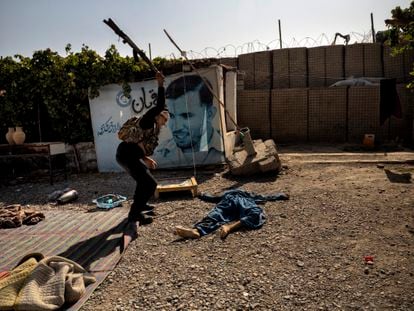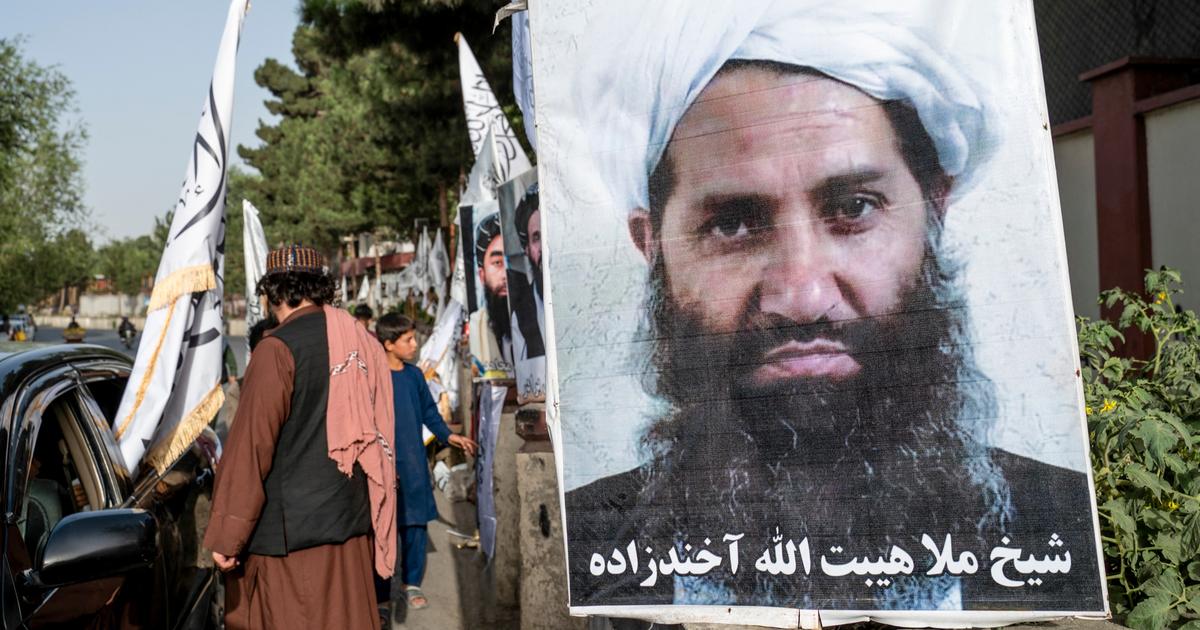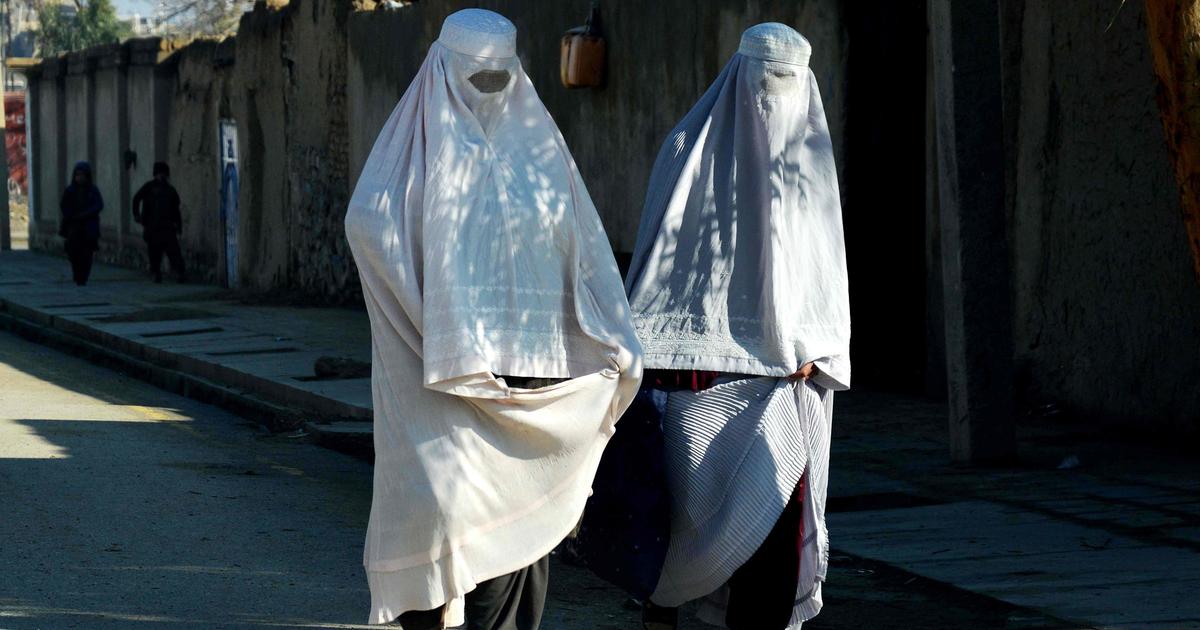On Tuesday morning the 11th, in the Kandahar cemetery, Noor Mohammad Agha, in his 30s, watched as gravediggers, armed with pickaxes, opened the graves for his parents. Sometimes he helped himself. Both his father and mother had died a few days ago in their village, Qasampol Dand District, a nearby town that suddenly became a front in the war between the Taliban and the Afghan army. Agha and her family fled, escaping the Taliban advance, taking the bodies of their parents, to Kandahar, Afghanistan's second city of 600,000 inhabitants. The war followed. In fact, in the cemetery, while digging the graves, Agha heard Taliban artillery fire getting closer and closer.
The daily life of the city, in the south of the country, until that morning, seemed to ignore the confrontations.
Most of the shops were open and people walked down the street as if nothing was happening on the other side of the hills.
And yet the Taliban advance across the country was rapid.
That same Wednesday, the Taliban were already at the gates of Ghazni, a key city for accessing Kabul by road (only 150 kilometers away), and Herat, the third largest city in Afghanistan.
Both would fall the next day.
The Afghan government was crumbling.
More information
The voice of the Taliban already has (a) face
The Taliban respond with violence to the first protests against their control
That Wednesday, in Kandahar, there was sporadic fighting, especially in the south, but, after a Taliban advance, the army had counterattacked and resumed its positions.
A group of soldiers from a detachment in this area were protesting because the Taliban, according to them, had better equipment, including, among other things, night vision devices.
They were still complaining when a policeman came at full speed in his patrol car, stopped, got out of the car and suddenly began to machine-gun the corpse of a Taliban dressed in blue lying on the ground.
One of the soldiers explained the policeman's behavior as follows: "The Taliban stormed our position shouting Allahu Akbar (God is great), insulting us, calling us foreign invaders, as if we were not Muslims."
Several young women on a street in Kandahar, on August 10.
Juan Carlos
The apparent calm and the balance of forces was broken on Thursday.
At the Mirwis Regional Hospital, known as the Chinese Hospital (because it was built thanks to Chinese help), located in the center of the city, the sounds of grenades and gunshots were already very close.
Inside, 7-year-old Ezat was healing from a minor neck injury.
The bullet that grazed him while he was packaged on a motorcycle went to lodge in the side of the driver, his uncle, Mutiullah, 17.
Join EL PAÍS now to follow all the news and read without limits
Subscribe here
Nearby, that afternoon, on one of the main roads that gave access to the city, a caravan of SUVs and vehicles was withdrawing from the battle front.
The soldiers who were in them had worry and tiredness marked on their faces.
The Taliban had the city at their mercy.
One of the soldiers got out of the car and showed his AK47 rifle without bullets, as if to indicate that they were leaving the front due to lack of ammunition.
Kandahar was no longer the great city of open shops and people on the street or riding a bicycle or motorcycle of a few days ago.
As the Taliban advanced - they were already less than 300 meters from the Chinese Hospital - the neighborhoods emptied of people.
A column of smoke visible from across the city signaled an attacked police station that was burning.
The city was filled with the sounds of sirens from the firemen.
Meanwhile, there was a roar of cars: it was another caravan of SUVs and military armored vehicles moving along one of the main streets of the city.
Manned by members of the army, they were heading towards the airport.
They were also withdrawing from combat.
Many local policemen, who were fighting alongside the army against the Taliban, tried to stop the routing caravan, aware of what awaited them if the city surrendered to the Taliban.
An Afghan soldier beats the lifeless body of a Taliban in Kandahar on August 10. Juan Carlos
That morning the change of government in the city took place.
Thus, on Friday, Kandahar woke up under the command of the insurgents.
The population realized it because the Taliban were walking down the street armed, on motorcycles or in official cars taken from the police or the army.
There were Taliban who tore the flags of Afghanistan from the army vans they had appropriated: "Afghanistan is now Islam," he said, before throwing the flag to the ground.
Most of the population was still locked up, waiting to see what would happen.
Videos of executed police officers circulated, and witnesses claimed that at night, the Taliban went house to house in search of weapons, a way to search their homes for police officers.
What was left of the Afghan army took refuge in a base near the airport.
There they ended up abandoning dozens of armored cars and SUVs donated by the US government, which ended up in the hands of the Taliban.
At the airport, with no commercial flights planned, a huge queue of Taliban formed, waiting to seize an enemy vehicle.
The mother and son of a family that receives donations from an international aid group, in Kandahar on August 10. Juan Carlos
The streets, little by little, were filled with people. The poorest, street vendors, hairdressers, those who ran a small bar, reopened their businesses. Kandahar, spiritual home of the Taliban and great Pashtun fiefdom, was always much more conservative (if not retrograde) than Kabul: women always, in recent years, even without being under the Taliban splint, took to the streets very covered. As of Friday, what someone who walked around Kandahar noticed is that these very covered women went out less.
The streets were emptied of women but filled with motorcycles, a vehicle not very allowed by the police because it was used by the Taliban to carry out attacks.
They continued to celebrate their victory by firing their machine guns in the air or on the ground.
On Sunday the last forces of the Afghan Army surrendered, a ceasefire was declared.
A Taliban representative gave a press conference proclaiming safety in the streets of Kandahar.
That same Sunday the conquest of Kabul was announced.
All of Afghanistan passed into the hands of the Taliban.
A young Taliban fighter at the airport compound in the city of Kandahar, on August 14. Juan Carlos
A group of Taliban from Kandahar organized a caravan to reach the recently won capital. The almost 500 kilometers that separate the two cities are not covered in less than 9 hours due to the catastrophic state of the road, full of potholes and holes, with the asphalt deformed by the lack of spare parts and the weight of the vehicles. The caravan crossed with regular buses that made the same route in the opposite direction, with cargo trucks from Kabul, with small groups of Taliban from the nearby towns mounted on motorcycles, with their rifles in tow.
In Kabul there is a night curfew. During the day, the city center and the more affluent neighborhoods appear much emptier than normal, waiting, with the cafes and restaurants closed. On the outskirts of the city, in the most humble parts, there is more movement, more shops open, more small bars that cannot afford not to open, even though they do not know what will become of them.







/cloudfront-eu-central-1.images.arcpublishing.com/prisa/KA3LQ5ZEAFEQXOIZXJEEVDUZUQ.jpg)

